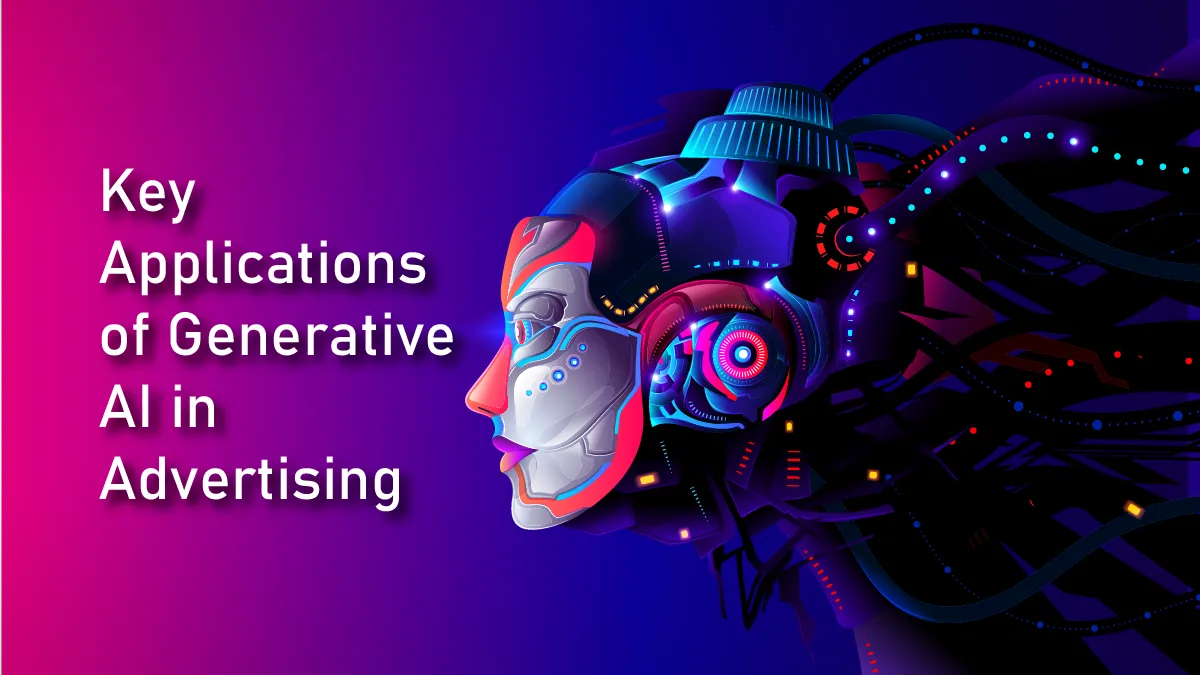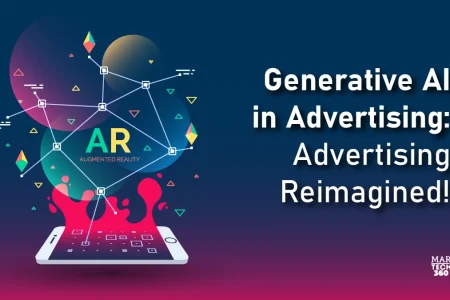Generative Artificial Intelligence (Generative AI or Gen AI) has transformed our daily lives. Be it in the form of chatbots like ChatGPT or art creation tools like DALL-E, Gen AI is changing the way we live, work, communicate, or create art. In the context of advertising, this technology enables marketers to produce personalized advertisements at scale. By leveraging generative AI models, AI algorithms, and machine learning, advertisers can create dynamic content tailored to individual consumer preferences, ultimately improving engagement.
How is Generative AI used in Advertising?
Generative AI is rapidly transforming the advertising landscape by enabling brands to create more personalized, efficient, and engaging content. This innovative technology uses advanced algorithms to analyze consumer data and create targeted ads that resonate with specific audiences. It also incorporates behavioral insights to predict consumer needs more accurately. Brands can use Gen AI to develop personalized email campaigns and targeted social media ads, enhancing engagement and driving higher conversion rates. Furthermore, it streamlines the creation and optimization of ad campaigns through automation. This automation reduces the manual effort involved in campaign management, freeing up marketers to focus on strategy and creative development. Here are some of the key applications of Gen AI in advertising.
Key Applications of Generative AI in Advertising

Content Creation: Generative AI excels at generating text, images, and videos for ad campaigns. It allows marketers to create fresh content quickly, reducing the time and resources traditionally required for creative development. This quick content generation enables marketing teams to respond swiftly to trends and consumer demands, keeping their campaigns relevant. Gen AI can produce multiple variations of content in different styles and formats, giving marketers a wide range of options. This flexibility enhances creativity and allows for more targeted messaging, ultimately improving engagement and effectiveness in ads campaigns.
Personalization: Gen AI analyzes user data like browsing history, preferences, and past interactions. This allows brands to develop targeted email campaigns, social media posts, and other marketing materials that enhance customer engagement and drive higher conversion rates. For instance, Gen AI tools can generate customized product recommendations based on a user’s previous purchases or interests.
Ad Optimization: Generative AI continuously analyzes campaign performance data to optimize ads in real time. This capability allows marketers to adjust their strategies dynamically, ensuring that ads remain relevant and effective. With Gen AI, brands can create dynamic advertisements based on user interactions. This means that an ad can adapt its messaging, visuals, or offers depending on how a consumer engages with it. For example, if a user shows interest in a particular product, the ad could automatically highlight related items or special promotions. This level of adaptability keeps the audience engaged and improves the effectiveness of advertising campaigns.
Cost Efficiency: Gen AI reduces operational costs associated with advertising campaigns by automating content creation and optimization processes. It allows brands to quickly create high-quality ad copies, images, and videos at scale, reducing the need for large teams and lengthy production times. This efficiency lowers labor costs and lets marketing teams focus on strategy. Additionally, AI analyzes campaign performance in real time, enabling data-driven adjustments that enhance effectiveness and reduce spending on underperforming ads. This streamlined approach helps brands allocate resources more effectively while maximizing return on investment (ROI).
Enhanced Creativity: Generative AI acts as a collaborative tool for creative teams. It generates new ideas and variations that help push the boundaries of traditional advertising. This collaboration encourages experimentation, leading to innovative campaigns that engage audiences. Additionally, AI analyzes past ad campaigns to suggest improvements. It enables creators to focus on refining their ideas, resulting in more impactful advertising. This blend of human creativity and AI enhances output quality and accelerates the creative process, enabling quicker responses to market trends and consumer preferences. McKinsey says generative AI could boost marketing productivity by 5-15%. It could contribute $4.4 trillion to global productivity each year.
Also Read: Top 10 Ad Management Tools You Can’t Afford to Ignore
How are Companies using Generative AI in Advertising?
Several companies are at the forefront of integrating generative AI into their advertising strategies. Amazon and HubSpot have effectively used Gen AI to boost their advertising.
- Amazon – Amazon has been one of the earliest adopters of AI and generative AI tools, primarily through its Alexa virtual assistant. When consumers interact with sponsored products on Amazon, request the weather from Alexa, or search for a new series on Prime Video, they are engaging with AI and machine learning technologies. This interaction enables Amazon to develop advertising strategies based on consumer preferences, ultimately boosting conversion rates. Furthermore, as Amazon continues to enhance Alexa’s capabilities with Gen AI, it aims to provide users with a more personalized and efficient experience that can adapt to their needs over time.
- HubSpot – HubSpot’s AI solution, Breeze, offers several AI tools for productivity and growth. This includes Breeze Copilot, a conversational AI tool that uses gen AI and CRM data to execute tasks quickly and efficiently. Another AI tool, Breeze Agent, helps in automating workflows from planning to execution. Additionally, Breeze provides real-time insights and analytics, allowing teams to make informed decisions based on current data trends. With these tools, HubSpot empowers businesses to enhance their marketing strategies and improve customer engagement effectively.
Challenges and Considerations
Generative AI has many benefits for advertising; however, its adoption presents several challenges. One key issue is quality control; marketers need to ensure that AI-generated content meets brand standards for quality and relevance. Ethical concerns about authenticity and transparency in advertising also arise, requiring brands to navigate these issues carefully to maintain consumer trust. Although generative AI can boost creativity, human oversight is essential to guide the creative process and ensure that campaigns connect emotionally with audiences. Balancing these challenges is important for brands aiming to use generative AI effectively while maintaining their integrity.
Conclusion
Generative AI is revolutionizing the advertising industry. It lets brands create personalized and engaging content at scale while optimizing campaign performance with data-driven insights. Companies like Amazon and HubSpot are leading this integration, showcasing its potential to enhance creativity and effectiveness. As advertisers explore generative AI, balancing automation with human creativity and ethical considerations is essential for delivering meaningful consumer experiences. Overall, generative AI represents a major advancement in advertising, offering opportunities for innovation and growth within the industry.

